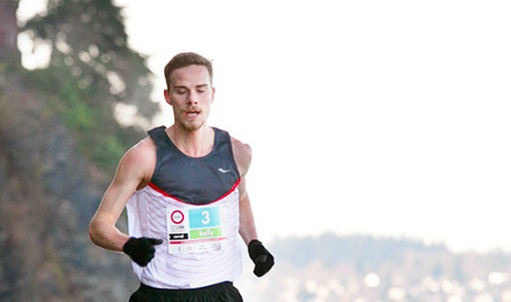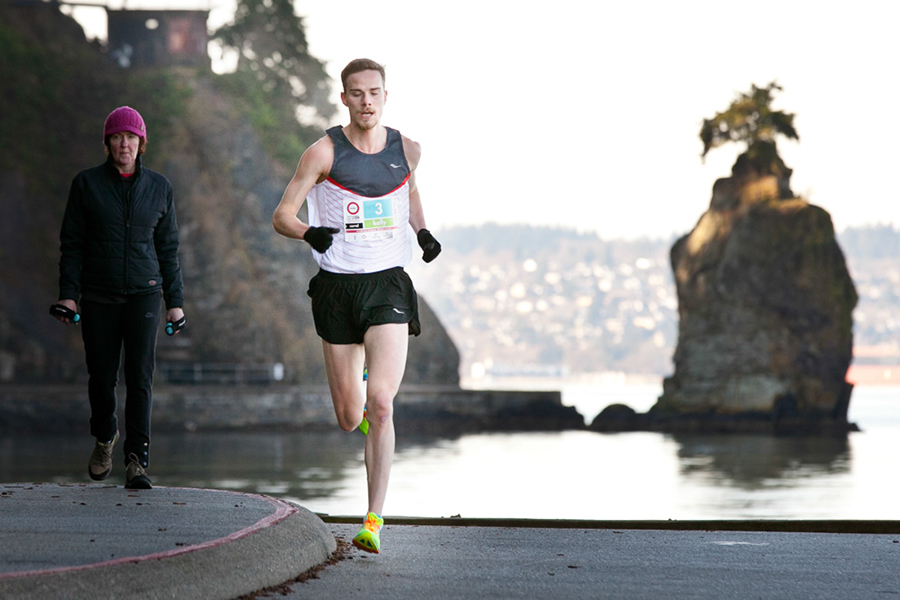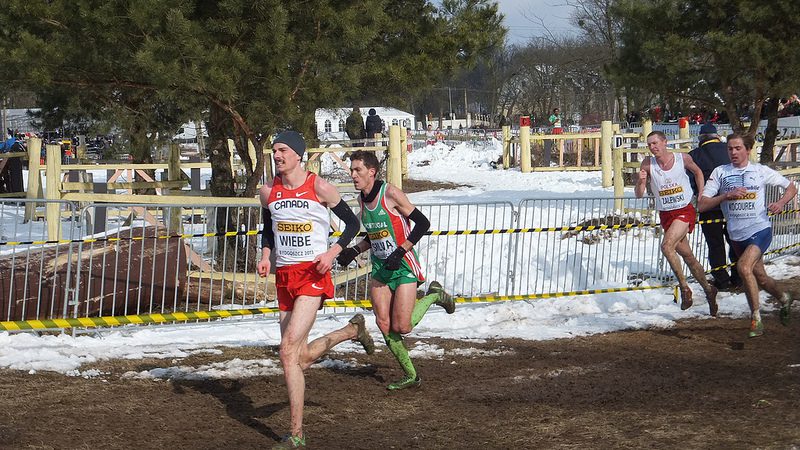An elite’s brush with death


Kelly Wiebe was so sick when he got off his flight in Vancouver at the start of April he couldn’t even pick his passport up off the floor. He asked a police officer to help, who eyed him skeptically before finally picking the small book up off the floor and handing it back to him.
A few days earlier, the Canadian runner had been in what he describes of the best shape of his life and was preparing to try and qualify for the Commonwealth Games. He didn’t know what was wrong with him and was in excruciating pain, but he had taken a gamble in California by deciding to fly home, dodging the sky-high costs of visiting a hospital in the United States.
Wiebe has been a rising star in Canadian distance running for a couple of years. He won the 2012 Canadian Interuniversity Sport cross-country championships in his senior year with the University of Regina before going on the finish third at the national championships behind Olympians Mohammed Ahmed and Cam Levins. After graduating from his engineering program, the Swift Current, Sask., native moved to Vancouver to train with the British Columbia Endurance Project (BCEP). He’s since also won a handful of big-name road races in recent years, including the popular Vancouver Sun Run.
BCEP had been in Santa Cruz, Calif., for a training camp and Wiebe was set to race at the Stanford Invitational the first week of April when he got sick.
“I was ready to run, at least, the Commonwealth ‘B’ standard — 28.05, or something like that [for 10,000m] — I was in great shape,” says Wiebe. “I went for a run on Sunday and felt great. Monday was my last hard workout. […] I nailed all my splits and felt pretty good about it, but then the next morning I didn’t feel too great. I noticed I was a lot more sore than normal. I thought that it was maybe from the workout, but it really wasn’t that tough of a workout.”
The 24-year-old woke up at 3 a.m. the next morning, drenched in sweat from a high fever and unable to get out of bed. Not knowing what was wrong, his coach Richard Lee took him to a walk-in clinic that then sent them to the ER. Wiebe hadn’t purchased travel insurance and was not covered for medical care in the U.S.
“They said ‘as soon as you walk in here it’s going to cost you $1,000 just to get admitted,'” remembers Wiebe. He and Lee had to decide if it was worth the risk to hop on a plane back to Vancouver. “I thought I could tough it out.”
Unsure if he would even be allowed on the flight, Wiebe says he tried to act normal while boarding the plane, in fears they would turn him away. He made it onto the flight to Seattle, but admits “it was the worst experience of my life.” When asked if he was alright during the flight, he told other passengers he was just overtired, fearing they might not let him on his connection home.
The group couldn’t get a direct flight back to Vancouver, so Wiebe had to take a two-hour layover in Seattle. His still-undiagnosed condition was rapidly worsening and he still had another flight back to Canada. He almost missed his connecting flight after falling asleep in pain on the floor of the airport, but managed to stumble onto the short connection back over the border.
“By the time I got to Vancouver, I was just trashed,” recalls Wiebe. “Things kept getting worse and worse.”

He made it through customs, which was when he dropped his passport.
“I asked this police officer who was standing there ‘Could you help me get my passport?'” Wiebe laughs remembering the story, but the officer didn’t find it very amusing at the time. “She was so skeptical and wouldn’t do it. Finally, I convinced her that I was really sick and I couldn’t bend at the waist and she picked it up for me, but it was like a 15-minute process.”
Lee’s wife is a social worker at the hospital, so when Wiebe finally got there everything was ready for him. They learned soon he had a blood clot in his adductor which had been overridden by bacteria causing a staph infection. If untreated it could quickly become a life-threatening illness.
Wiebe was kept in the hospital on antibiotics for two-and-a-half weeks, much of which he was was bedridden during. Even after being released, he was kept on IV drip and couldn’t exercise.
Two months later, he’s back doing easy running and cross training and is feeling better than he has in a long time.
“Over eight months or so my energy levels have been really, really poor,” says Wiebe. “I was always run-down and couldn’t figure out why. The doctors think this bug was actually in my system for up to eight months, which explains why I was so tired all the time. Now that it’s out of my system, I immediately feel awesome — the best I’ve felt in years.”
Looking back, Wiebe says the experience has taught him and his coach a lesson and no one in the group will ever be travelling without insurance again, even for only a day or two.
“The healthcare system we have here has made me feel so lucky. I had about 10 doctors helping me at once at one point, I remember, and they treated me amazing.”


